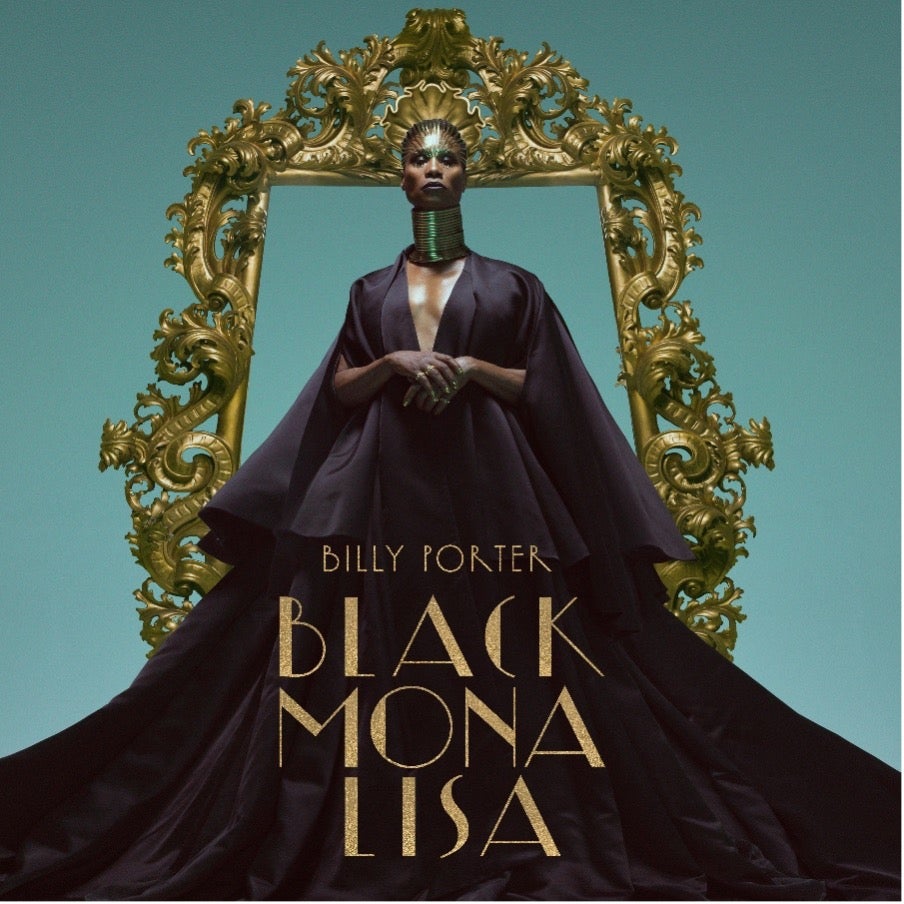
In a career spanning 30 years, Billy Porter has established himself as one of the most talented individuals in the entertainment industry. He has excelled in various roles across film, television, and theater, winning a Tony Award in 2014 and a Primetime Emmy in 2019 for his stellar performance in the critically acclaimed, Pose. Regardless of the space he was in creatively, music has continued to maintain a presence in the psyche of this Pittsburgh native.
November 17, 2023, saw the release of Black Mona Lisa, “a celebration of life,” as Porter puts it. “I’m excited to share the joy and the hope and the love and the peace and the compassion with the world,” he continues. “That’s what this music is about.”
Executive produced by Grammy-nominated songwriter, Justin Tranter, this new album contains songs that tell Porter’s story authentically, with depth and nuance. Throughout its 12 tracks, Black Mona Lisa takes listeners on a journey influenced by an era when house, disco, and dance music reigned supreme. It also encompasses a bevy of emotions, from the powerful transparency on “Audacity” and “Children,” to the upbeat sound of “New Shoes,” this project gives the thoughts and feelings of a person comfortable in living their truth.

While Porter aims to tell his story with Black Mona Lisa, it’s also a call to action for other people to embrace their unique personality and characteristics, regardless of the perception of the often-times uninformed outside world.
“Just be who you are,” Porter explains. “Well, it’s easy to be who you are when who you are is what’s popular. And who I am was not popular for a very long time. I’m grateful to have lived long enough to see the day where my queerness is my superpower. And to be able to speak from the fullness of my authenticity is really special in my music.”
ESSENCE: You finished your nationwide Black Mona Lisa tour in June—can you speak to me about the excitement about your upcoming album?
Billy Porter: This album is my entire life in the making. It’s my fifth album. My first mainstream music R&B album came out in 1997, Billy Porter – Untitled on A&M Records. The industry was very homophobic at the time. Nobody was listening to me, nobody was interested in my authenticity at the time. Everybody told me my queerness would be my liability, and it was for decades. And I got to live long enough and do it anyway. So now here I sit, I get another chance and I get to do it on my own terms. It’s really special. It’s amazing, actually. It’s unbelievable that I get to really speak from the depths of my soul, my queer Black soul. That has not always been the case, so I’m excited for that. I’m excited to share the joy and the hope and the love and the peace and the compassion with the world. That’s what this music is about. It’s a celebration of our lives. A celebration of life.
So, the title—it’s a very, very powerful title in my opinion. The name Black Mona Lisa, why is that the perfect description for this album?
Well, Justin Tranter, the amazing Justin Tranter; we had been working together for about a year and we needed a title track, and Black Mona Lisa kind of just fell out of the sky. I don’t even remember where it came from, but I remember that all of a sudden the room went silent for about 30 seconds and then 20 minutes later we had written the song. Then after that, again, I began to put the pieces together of that divine moment. The Mona Lisa is relevant, past, present, future, and for always. That’s what I want to be. That’s the legacy that I want to leave through my work.
As a person with so many creative endeavors attached to the name, what was it that inspired the creation and the recording of this album?
My whole life. My life, and being able to finally talk about it, being able to finally experience that authenticity component. This feels really, really special.
So, you spoke about your life in two of your responses. I want to kind of do a slight pivot. In what ways do you think your career in theater helped impact your musicianship?
The biggest impact is the storytelling component. It’s about storytelling. It’s about making sure that you’re connected to the material. I think that is what I bring, the fullness of theater into the mainstream music space. I’m always telling the story. No matter how boppy the song is, there’s always a story. There’s always a purpose. There’s always a point.
I noticed that you only had one feature on the album, which is Lady Blackbird. Why was it or what was it about her that made you want to incorporate her into the album?
Actually, she came at the suggestion of Steve Pitron over at Island. Once again, it was divine order because I had gone to a place in London and everybody told me that I would love her and as it turned out, I knew her musical director, Kenneth Crouch. She performed and I thought she was exquisite, like exquisite. And then a week later, Steve Pitron from my label said, “Do you know Lady Blackbird? What do you think about her guesting on the track?” And so what I love is that we’re close in age. We’ve had a lot of the same struggles just in terms of breaking through. She’s also queer and she sings her booty off.
Okay. So for my final question for you today, what is the message that you would like to convey for your listeners with Black Mona Lisa?
You are enough just as you are. Celebrate that always.






